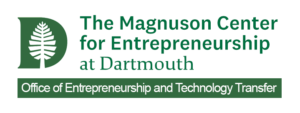Student Startup Aims to Demystify and Streamline Recruiting Process
Founded by two first-generation college students, Fledge makes recruiting more equitable, and provide a modern, streamlined approach to applying for jobs.

As first-generation college students applying for jobs in finance, Yizhen Zhen ’24 and Jason Luo ’25 felt utterly overwhelmed.
“Both of us walked face-first into the wall multiple times,” said Zhen.
The two identified two main barriers: first, they simply didn’t understand the recruiting process. Second, tracking networking, emails, applications, and follow-ups was very unorganized.
In talking with other students and alumni, Zhen and Luo realized that the process for tracking applications was largely unchanged from the 1990s. Students still relied on spreadsheets and manually inputting information in the same way their predecessors did thirty years ago.
“We found that sort of ridiculous,” Zhen said.
The duo set out to create a better system: Fledge. Inspired by customer relationship management (CRM) software that allows companies to effectively reach thousands of customers, Fledge streamlines the job application process by allowing users to network with bulk emails, add contacts, and track recruiting deadlines. The company has a social entrepreneurship focus, with lots of information about navigating the recruiting process.
“It’s for everyone, but our social mission is to serve first-generation students like us,” Zhen said. “We don’t want them to walk into that wall.”
After making a few mistakes in the recruiting process, Zhen and Luo have both committed to jobs in finance. They plan to continue to work on Fledge, and believe that their experience with the recruiting and hiring process gives them the authenticity that makes Fledge stand out from other application and networking programs like LinkedIn or Handshake.
“We felt like only with our experience actually going through processes, only then can we have the confidence and ability to give the info to the students in an unfiltered and truthful way,” Zhen said.
Theory, versus real-world application
The idea for Fledge took root after Zhen and Luo compared their experiences with the recruiting process. But it really came to fruition last year, when Zhen built a prototype of the platform for his final project in CS52, a full stack web development class.
“After building it, we felt we wanted to continue with the idea as it aligned with our mission,” Zhen said.
That summer, he interned at Blackstone, an investment management firm based in New York City. Although he was regularly working until midnight, he came home eager to continue coding Fledge. That passion energized him to really dive into the project when he returned to Hanover for his senior year.
“I believed there could be a more efficient tool, and I knew I can’t be the only one interested in a tool like this,” Zhen said.
Finding mentorship
Zhen and Luo had worked at large technology companies and major financial firms. Fledge sat at the intersection of those two spaces, so the founders felt they’d be well-poised to thrive in that space.
Yet, “we learned it’s not as easy as it seems,” Zhen said.
Understanding the theoretical aspects of running a business is beneficial, but actually executing those steps can be difficult. The founders knew they needed guidance, and reached out to Roy Schmidt, Program Manager for Startup Support at the Magnuson Center.
“We needed a mentor to guide us through,” Zhen said.
Schmidt helped the founders bridge the gap between theory and real-world application. For example, when the founders felt stuck pursuing institutional partners to get in front of students, Schmidt encouraged them to find other ways to make progress and not focus on a single path. The team also took advantage of the new Startup Mentor Network program to get advice from mentors like Matt Avero-Sturm ’13 on marketing ideas and Marc Escobosa ’95 on user experience (UX) and design.
“During that wait time, the Magnuson Center helped us to keep learning and still be productive,” Zhen said.
Making it easy to adopt Fledge
In December, Fledge received a $2,000 Founders Grant from The Magnuson Center. The founders used that funding to hire a user interface/user experience (UI/UX) designer to bolster the platform’s webpage and create a mobile-friendly version.
Today, Fledge is in a closed launch with about 200 users at Dartmouth and the University of Michigan. The initial feedback has been very helpful for prioritizing features. Recently, Fledge added an AI interview assistant, which provides tailored interview questions for each company a student is interested in, based on past interview questions from that company. The team funded the development of this feature with the remainder of the Founders Grant.
By mid April, the founders are hoping for a more widespread launch. In line with the company’s social mission, the base of the platform will always be free, while premium features, like the AI interview assistant, will require a subscription.
Over the course of the year, Zhen would like to incorporate more automation into Fledge, to make it even more appealing to students.
“Students love the tool but they’re used to using spreadsheets because that’s what’s been done,” he said. “To break tradition, we need to introduce a way that’s so much more efficient, making it easy to change from spreadsheets to Fledge.”

